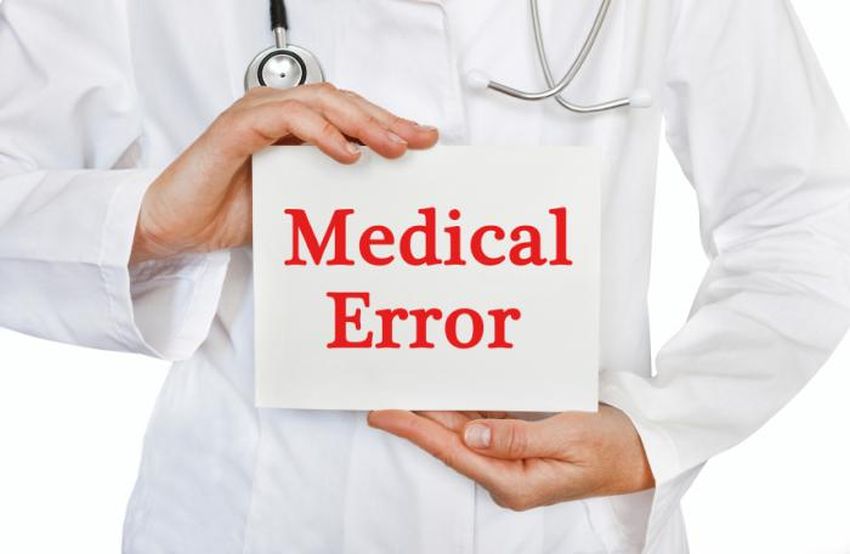Like all humans, doctors and healthcare facilities make mistakes from time to time, making medical malpractice cases more common than you’d think. To know just how prevalent these are, we’ll review the numbers of related cases, explaining the most likely scenarios related to malpractice, and giving you solutions if you ever suspect it in your own experiences.
But before we get started, let’s explain what medical malpractice is.
Page Contents
What is Medical Malpractice?

source:medicalnewstoday.com
Medical malpractice happens when a doctor, healthcare facility (such as a hospital), or any other healthcare provider makes a mistake or is negligent of common practices while treating a patient. This can result in injury or death from surgery, pharmaceuticals, diagnoses, or anything else pertaining to health-related treatments.
There can be multiple individuals or facilities charged in a single lawsuit, as often times a scenario involves both a caretaker and the facility where the care was rendered.
How Common is Medical Malpractice?

source:baileylawfirmaz.com
According to the FDA, over 95,000 medication errors have occurred since 2000, based on reports sent into the organization. The CDC estimates nearly 99,000 people die each year from hospital-related infections.
Medication errors and hospital infections aren’t the only scenarios where this takes place. Some other common situations include:
- Labor and delivery injuries to a newborn baby
- Too little or too much anesthesia during an operation
- Surgical injuries such as spinal cord or heart damage
- Performing the wrong surgery on a patient
- Errors with prescription medications or medications given to you before surgery
- Failure to diagnose or treat a disease, like cancer, in a timely fashion
- Permanent injury or death of a patient due to not following protocol
When and Why Should You Pursue a Medical Malpractice Lawsuit?
If you’ve experienced any of the scenarios above or felt that a healthcare professional didn’t follow protocol while you were under their care, you should consider filing a lawsuit.
Malpractice lawsuits can help you recover financial losses or at least give you some kind of reparations when you are injured while undergoing treatment, if not just for you but for your family.
What Happens When Medical Malpractice Affects You?

source:theleader.info
If you find yourself asking if any of this applies to you, you should ask a lawyer or law firm that specializes in personal injury lawsuits, like Schwartzapfel Lawyers. An attorney can help you better understand if your case qualifies and what type of damages you may be eligible for.
Before you meet with your attorney, here are a few things to consider:
Know the Difference Between Medical Malpractice and Ordinary Negligence

source:medicalnewstoday.com
The difference between malpractice and ordinary negligence cases can be deceiving at first glance. There are slight differences between the two that can change your lawsuit into a negligence case or vice versa.
Malpractice cases require specific scientific or medical skills that an ordinary person does not possess. In other words, an average Joe that didn’t have any medical training cannot be sued for malpractice.
Ordinary negligence cases, as they do not require any extensive medical knowledge, can be tried by a judge and jury without medical backgrounds. Malpractice cases, on the other hand, will require medical experts as witnesses at trial, which is where a law firm comes in handy.
Understand the Statute of Limitations in Your Area
Like criminal cases, malpractice and ordinary negligence lawsuits may need to be tried within a certain time period to be considered at all. For instance, in New York, the statute of limitations for ordinary negligence is 3 years, while malpractice is only 2.5 years.
This means that you’d have 3 years to take your ordinary negligence lawsuit to court in New York or 2.5 years to try for malpractice. After that, you are no longer able to try your case in the state.
There are even shorter statutes of limitations for municipalities, or cities, so if you intend to sue a city or county hospital, you should look into taking your lawsuit to court rather quickly. If you are unsure about the statutes of limitations in your area, you should always reach out to an attorney to learn more before attempting to take your case to court.
Learn How to Prove Your Case

source:medicalnewstoday.com
Proving your case requires providing evidence that a caretaker or healthcare provider did not follow common practice and, in doing so, resulted in injury.
If you can provide evidence of negligence based on a correlating injury and deviation of practice, you may win your lawsuit. If you are unsure how to link or if any medical process was not followed during the time of your care, you should consult a lawyer that practices within the area of where you were treated.
Always Find Legal Representation with Relevant Experience
Last, but not least, you should always look for an attorney with relevant experience if you decide that you are ready to take your case to court. Law firms that deal with medical cases have more resources and greater knowledge of what is needed to win, and they should be able to demonstrate a successful track record to earn your confidence.
Your legal representation can help you find expert witnesses to provide testimony during the trial and can help you navigate the law surrounding these complicated cases.
What Kind of Damages Can You Receive?

source:theleader.info
At a minimum, your personal injury lawsuit should provide enough money to pay your medical bills and make up for lost income. With a good attorney at your side, you may also be able to recover damages for pain and suffering.
Know Before You Go
When it comes to preventing injuries due to medical negligence, ask questions about the healthcare professionals performing your treatment, look into reviews about the facility where your services will be rendered, and always be upfront about your current medical history. By providing more details, you may be able to avoid these issues in the first place.
You should always know before you go and if you have any doubt or questions about malpractice, reach out to those who know it best.





